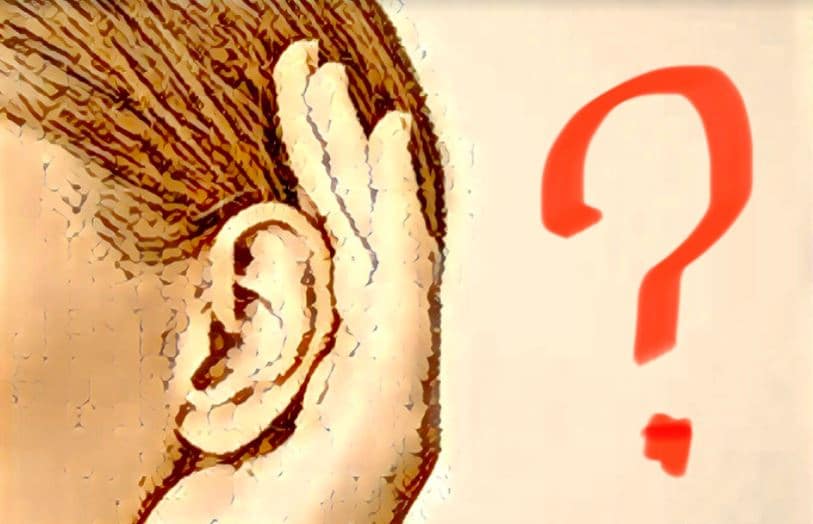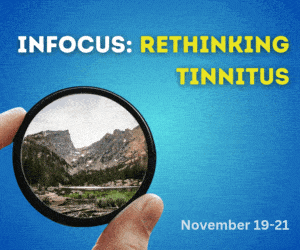Hearing loss is a two-sided problem. Having it, is on one side. Effectively explaining it to others is on the other.
We wonder—why is it so challenging for them to understand the way hearing loss manifests itself in us?
It’s not that we haven’t shown our audiogram to the people who need to know—the people with whom we communicate the most, the people we love or the people we work with. We have shared our diagnosis with them and explained the technology that we hope will help.
Maybe we have even let them hold our hearing aid, pointing out where the battery goes in, the piece that sits down in our ear canal, and any other interesting tidbits we hope can help them understand not only the capabilities of this device, but its limitations.
We have successfully connected our devices via telecoil and/or Bluetooth to the phone, the TV and any other device from whence sound cometh. They have seen us in this happily connected state, but also how we struggle in other situations.
Why then, do our partners, parents, children and friends consistently fail to grasp the minute-by-minute effect of hearing loss on our communication and understanding?
How can they so easily forget that when we’re talking face to face and they turn away as they continue to talk, that we will lose them?
Because–they are not us. Because our reality is not theirs—they don’t have hearing loss. And because, like us, they are human and imperfect.
When they hear a sound, crystally-clear, understanding not only what it is but where it’s coming from, it can be impossible for them to realize that we do not perceive that same sound, or in the same way, in the same time. We may not be able to tell if it’s a bird squawking or a dog barking, and we certainly couldn’t pinpoint where the creature is.
Through the miracles of nature and science, sound is perceived in our heads, not theirs and we can’t expect them to do the impossible. All we want is for them to understand what we need in order to connect—and then stick to the plan!
It would also help, I think, if we could be more understanding about the difficulty involved in adhering to this plan, in any given moment. Communication and connections are high-speed ziplines that require attention, and when our family or friends are fully engaged in their own hearing processes, we may sometimes be left out.
What can we do?
- Have a sit-down and a chat about the challenges of this communication thing. Ask them how we can better help them to help us (you may need to reread that). Work together to create habits out of good communication.
- Have someone else provide the information they need. Your hearing care professional is one source. Perhaps someone you both know, who seems to have successfully dealt with hearing loss in their relationship. Perhaps you’ve read an article or a book (mine, or another author’s) that explains the reality of hearing loss. This can sidestep the emotion that discussion can cause.
- This is an old trick, but it might work: have your loved one or friend wear earplugs that approximate your hearing loss even a little bit. Then go to a café with a couple of other people and carry on a conversation. Make sure there’s lots of background noise and and the lighting is low. Keep changing the topic, swiftly, so they get an inkling of what we go through. Then, connect them to their phone or other source of sound with AirPods or other directly in-the-ear headphone, so the understand the difference that streaming makes to us.
- Keep at it!
There’s no easy fix—after all, it’s hearing loss we’re talking about! I’ve been with the Hearing Husband for over 30 years, and if anyone should understand hearing loss in a loved one, it’s my guy. He reads my writings, he hears me speak at conferences, and hearing loss is a constant source of conversation.
Yet still, in the moment, he may turn away as he speaks. I can get irritated or I can be patient—depending on my mood or the day of the week. But this is the same Hearing Husband who understands my difficulty in identifying sounds; he recently helped me detect the hooting of owls, for the first time ever, through my cochlear implant sound processor. Magic.
Accepting that none of us are perfect, we must keep communicating as best as we can, striving to make it better, because communication is the glue that holds us all together.







Good column Gael. I think I need to write a version of this for kids. It’s really hard for them to talk to people about their hearing loss
I decent column but please be careful with the ‘They/Them’ thing, we need to be included, not ‘them and Us’ which has divided deaf and hard of hearing for the last 40 years, so we no longer share ideals at all. A few have ended by with deaf lives matter attacking hearing people we don’t need or want this. Inclusion HAS to be the main point, and they won’t include hostiles.